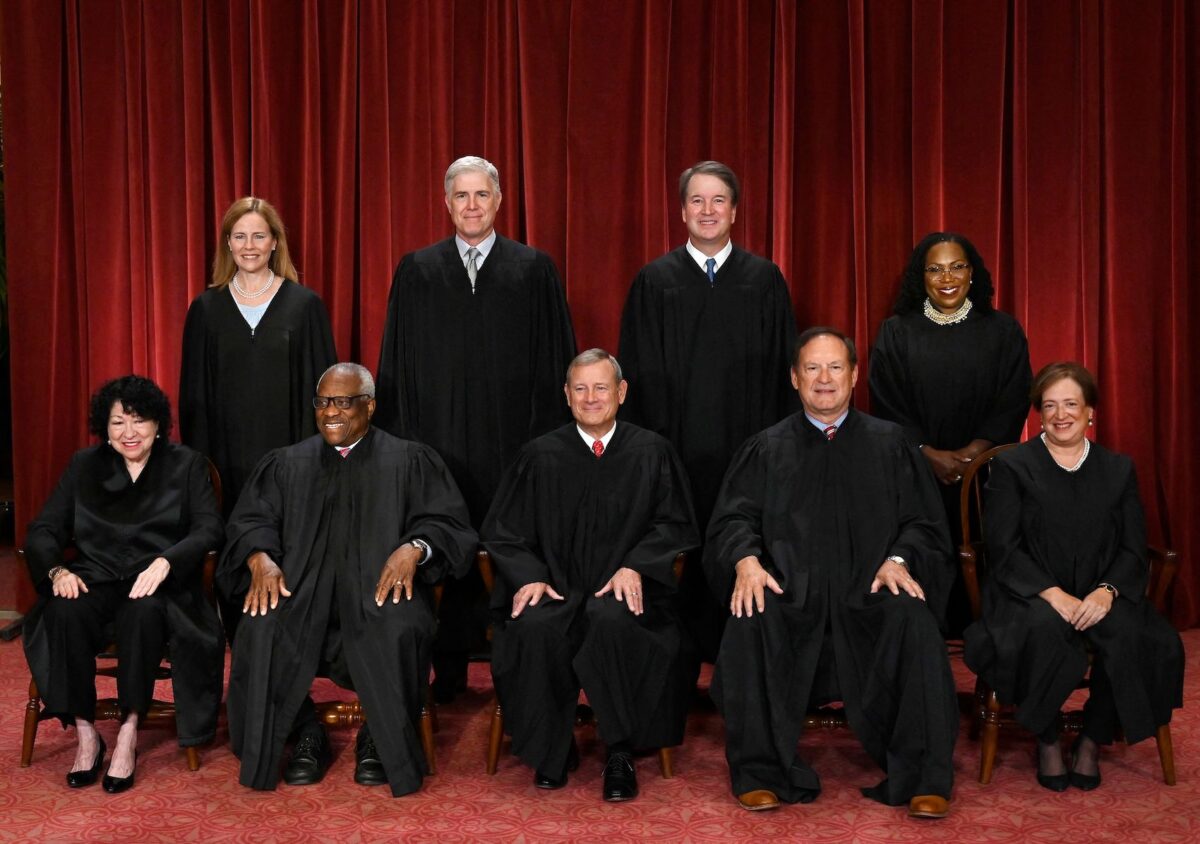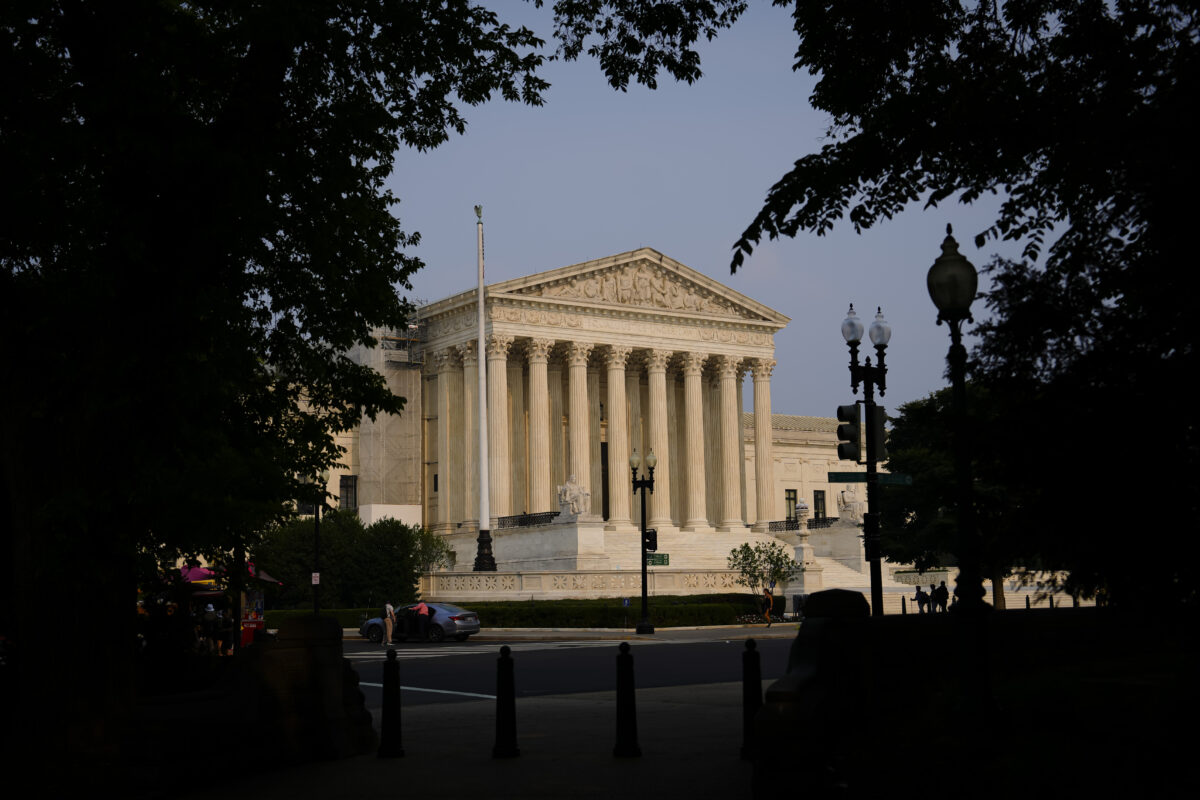The Supreme Court ruled 8-1 that federal bankruptcy law supersedes Indian tribes’ sovereign immunity.
An Indian tribe in Wisconsin had argued it could not be sued and that bankruptcy protections, such as the law’s automatic stay of collection efforts when an individual files for bankruptcy, did not operate to block its efforts to seek repayment of a debt from a person who filed for bankruptcy.
The Supreme Court disagreed in its ruling on June 15 in Lac du Flambeau Band of Lake Superior Chippewa Indians v. Coughlin (court file 22-227).
In this case, Lendgreen, a payday lending operation owned by the tribe, tried to collect a $1,100 overdue account from the respondent, Brian Coughlin, one of its members who subsequently filed for bankruptcy.
Tribe Sued
Although the act of filing for personal bankruptcy is supposed to halt collection efforts, the tribe continued to press Coughlin to pay even when he went into the hospital after attempting suicide, an act he said the allegedly aggressive collection efforts drove him to. Coughlin sued the tribe for almost $173,000 in damages and attorney fees for the collection efforts that he says caused severe emotional distress.
The tribe argued that because it enjoys tribal sovereignty, it could not be sued.
Indian tribes are sovereigns that predate the adoption of the U.S. Constitution. They enjoy the same common-law immunity from lawsuits that sovereign governments possess unless Congress clearly expresses its intention to abrogate, or repeal, that immunity.
The U.S. Bankruptcy Code abrogates the sovereign immunity of “governmental units,” but does not specifically refer to Indian tribes in defining that term. Instead, the code provides a list of specific federal, state, local, and foreign entities and then adds “or other foreign or domestic government” in a residual clause, according to the tribe’s petition.
The Supreme Court has used a “clear statement rule” when Congress intends to waive tribal sovereign immunity, but the court has also said that legislation does not have to include specific or “magic” words in order to do so, the tribe argued.
Coughlin asked the U.S. bankruptcy court to stay Lendgreen’s collection efforts and sought damages.
The bankruptcy court dismissed the lawsuit, reasoning that it lacked jurisdiction because the bankruptcy code did not clearly express congressional intent to abrogate tribal sovereign immunity.
A divided U.S. Court of Appeals for the 1st Circuit reversed, finding that the code “unequivocally strips tribes of their immunity.” The tribe appealed to the Supreme Court, which agreed on Jan. 13 to review the case.
The justices here were asked to consider if the bankruptcy law’s waiver of immunity for various governments includes tribal governments.
The tribe’s attorney, Pratik Shah, told the court during oral arguments on April 24 that Congress “has long treated tribes differently than the governmental entities enumerated” in the law, “including under the federal bankruptcy statute preceding the code.”
“Congress gave no indication, let alone an unmistakably clear one, that it newly intended to treat the tribes the same in the current code,” Shah said at the time.
For two centuries this court has struggled “to describe Indian tribes in its opinions.”
“It has said they are not clearly foreign because, obviously, they have connections to the United States. They are not purely domestic because they have pre-constitutional residual sovereign power,” the lawyer said.
Speaking for the Biden administration, attorney Austin Raynor said, “The bankruptcy code unequivocally abrogates the sovereign immunity of the United States, states, districts, territories, foreign states, instrumentalities or agencies of any of those governments, and other foreign or domestic governments.”
“That language unambiguously encompasses all governments, including Indian tribes,” Raynor said at the time.
‘Biggest Hurdle’
Telegraphing the court’s June 15 ruling, Chief Justice John Roberts said that Congress has never waived sovereignty without specifically using the word “tribe.”
“The biggest hurdle I think you have to get over is that … everywhere else they use the word ‘tribe,’ and they didn’t here,” Roberts told Raynor during oral arguments.
“So is this … the only instance where they haven’t used the word ‘tribe’ or ‘Indian’ when they meant to include them?”
Raynor replied, “This is the only one we’re aware of. That doesn’t mean there aren’t un-litigated statutes out there that might encompass tribes.”

The majority opinion (pdf), written by Justice Ketanji Brown Jackson, affirmed the 1st Circuit. Justice Neil Gorsuch, who frequently sides with tribal governments, filed the lone dissenting opinion.
“We conclude that the Bankruptcy Code unequivocally abrogates the sovereign immunity of any and every government that possesses the power to assert such immunity,” Jackson wrote for the court.
“Federally recognized tribes undeniably fit that description; therefore, the Code’s abrogation provision plainly applies to them as well.”
Jackson wrote that Lendgreen continued to press for repayment even after the bankruptcy law’s automatic stay of collection efforts was triggered when Coughlin filed for bankruptcy. Coughlin said the collection campaign was so aggressive that “he suffered substantial emotional distress, and at one point, even attempted to take his own life,” she wrote, recounting the facts of the case.
Jackson rejected the tribe’s contention that it was entitled to immunity because it was neither a “foreign” nor “domestic” government. U.S. bankruptcy law applies to all governments in the country, just as the phrase “rain or shine” is intended to cover all types of weather, she added.
‘Flawed Premise’
Justice Clarence Thomas lamented that the majority did not go far enough.
The court should have rejected “the flawed premise of tribal immunity,” a “judicially created” concept that has no basis in federal law or the U.S. Constitution, Thomas wrote in a concurring opinion.
The justice said he “warned nearly a decade ago that tribal immunity ‘will continue to invite problems, including de facto deregulation of highly regulated activities; unfairness to tort victims; and increasingly fractious relations with States and individuals alike.’”
Tribal immunity “creates a pathway to circumvent vast swaths of both state and federal laws,” Thomas wrote.
In his dissent, Justice Gorsuch wrote that “the Constitution’s text – and two centuries of history and precedent – establish that Tribes enjoy a unique status in our law.”
Gorsuch wrote that the bankruptcy code “flunks this Court’s clear-statement rule.” He would have reversed the circuit court, the justice added.


















































